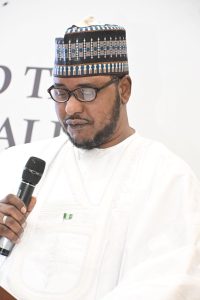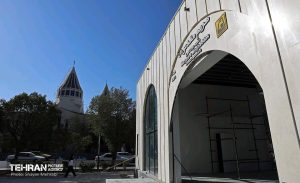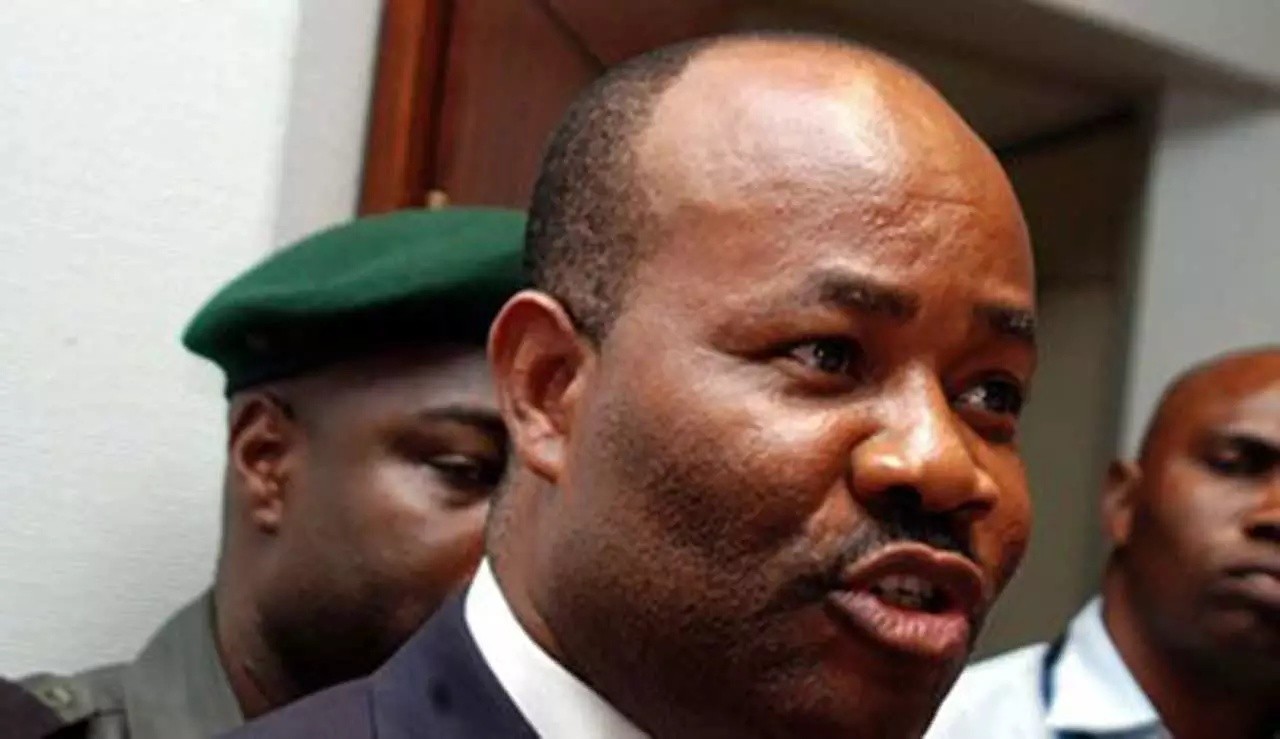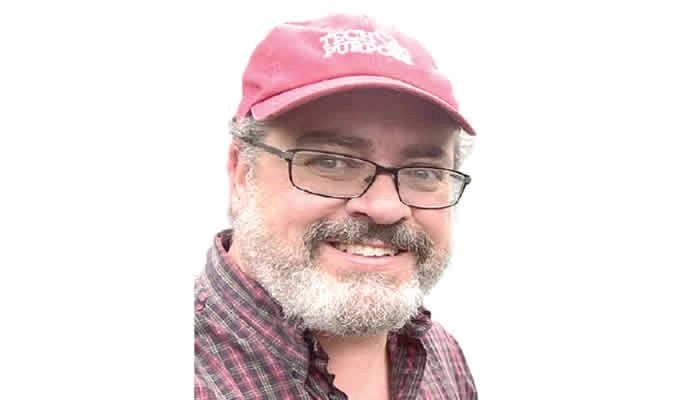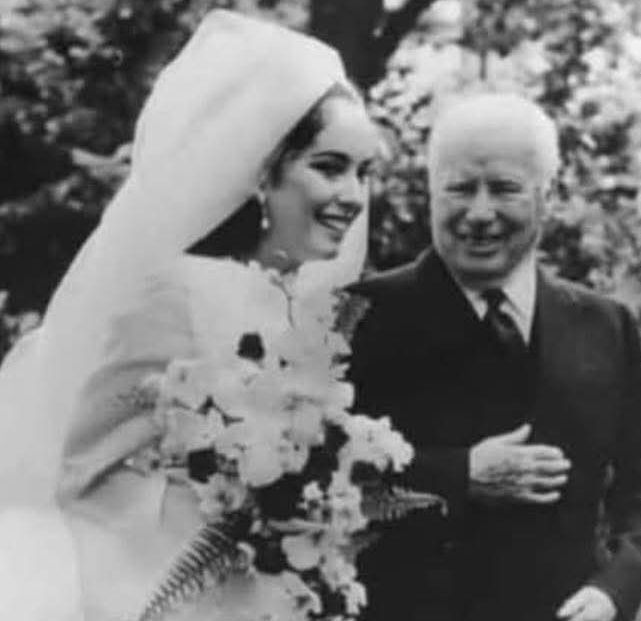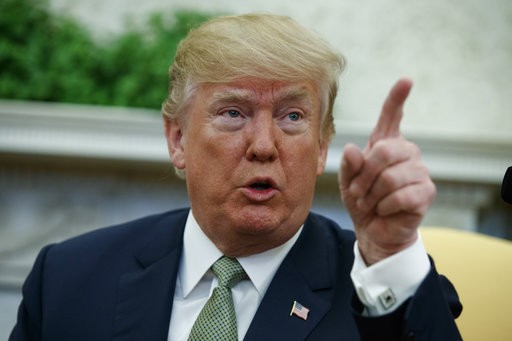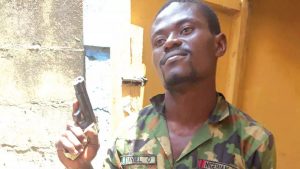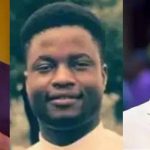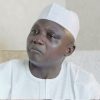
Immediate past Senate minority leader, Mr. Godswill Obot Akpabio, have elicited close examination of the stark, but disturbing realities in Nigeria’s democratic governance. Why is it that former military officers continue to determine the direction of civilian rule even after twenty years of democracy? Akpabio has just shown why. Nigerians saw him crawl to the Aso Villa, the seat of Nigeria’s Presidency, where he reportedly conferred with the acting President, Prof. Yemi Osinbajo.That move helped to thicken speculations that the former playmaker of Peoples Democratic Party (PDP) was on his way to swimming against the tide of mass defections in the National Assembly from PDP to the All Progressives Congress (APC).
Earlier, the Senator had declared that any political party could return to the Senate in 2019. That was about the first hint of the planned carpet crossing being contemplated by the former governor of Akwa Ibom State. If doubts existed as to the real schemes of the boisterous politician, his emergence at the London resort of President Muhammadu Buhari, where he was pictured in a pose depicting his confusion as to whether to bow or squat in sycophantic genuflection, proved the skeptics wrong.
Intriguingly, Akpabio was to pay the final visit to the APC operational headquarters in Bourdillon, where he was also pictured as he bade goodbye to his yesterday of freedom as he begins a fresh journey to servitude and political contradiction. Whatever becomes of Godswill Akpabio or whatever he becomes in his new chosen path, the Senator would forever remain a footnote in the prevailing undulating national politics of recidivism. Shame is gone.
When some social commentators called for the taxing of prostitutes, it must be in allusion to politicians who change platforms like chameleons and mouth foreign ideologies like Janus.
Between Akpabio and Obasanjo
THE scripture says, the good shepherd stands to fight for the sheep, but the hireling runs away and abandons them. Throw back to 1998. It was indeed when the national convention of PDP gave rise to the mercantilism that has remained the lot of that political party.As the military high command opened the loft of their trickery and dispensed with cash their civilian collaborators queued up, throwing decorum to the air as they scrambled for ‘delegate allowance’.
Did the departing soldiers force the civilians, who were the delegates that voted at the presidential primary, to reject their leader and founding chairman, Dr. Alex Ekwueme? When General Obasanjo was announced as the ‘winner’ of the PDP presidential primary, did any of the chieftains of the party cry foul?
The point is that experience has shown that whenever democracy was torpedoed in Nigeria, the military always have sufficient backing from their civilian collaborators who most of the times are adept at suggesting disingenuous strategies to obfuscate freedom of expression and choice.However, the choice of Obasanjo to berth the return of Nigeria to democracy has its own merits. In the first place, he stands out as one soldier whose patriotism, pretended or real, has not been rivaled.
In 1978 Obasanjo set up the Constituent Assembly in a bid to establish a durable constitution and system of government that could keep Nigeria united, prosperous and strong. That effort gave rise to the 1979 constitution. Despite its shortcomings, the 1979 constitution raised the bar on Nigeria nationalism and birthed the presidential system and second republic. Regardless of the peccadillos of the operators of that constitution, Nigerians did not have cause to complain of marginalization in the scheme of things then.
Appointments into positions of authority, including elective offices were balanced and spread out along the six geopolitical zones divides. But while the likes of President Shehu Shagari and Ekwueme, were in the minority, characters in the molds of Umaru Dikko and Chief Augustus Akinloye numbered in the majority.Like PDP that succeeded it, the National Party of Nigeria (NPN), which was in control of the federal government, was, in both organizational structure and outlook, nationalistic without evident traces of nepotism.
That Obasanjo did not renege on his administration’s promise of handing over the reins of political power to the civilian was a measure of the man’s steadfastness, even though many a military officer believed he was intimidated and wary of the power play within the Nigerian Armed Forces Ruling Council.Even while out of political power and the military, Obasanjo experimented with the idea of Commonwealth Elders Council and continued to take interest in socio-political thought, particularly on issues bordering on leadership in the third world.
When the civilian administration that succeeded him decided to get wanton, Obasanjo spoke out through his invasive missives. Perhaps, his position echoed the minds of Nigerians who trooped to the streets to herald the military take over that cut short the democratic experience.Obasanjo has remained true to his fancies about Nigeria: He has written, he thinks and continues to mobilise for a better nation. From the Ibrahim Babangida regime that deposed the iron fist Buhari/Idiagbo junta through the Sani Abacha opaque gang, Obasanjo has been on the frontlines, speaking truth to power.
Nigeria does not belong to Obasanjo. That thinking must have informed Abacha’s decision to send him to the gulag after associating him with a phantom coup. That Obasanjo’s ideas about nationalism outlived Abacha could be a testament of the man’s courage and belief in the cause of a prosperous Nigeria.
Early this year, Obasanjo wrote, not a letter, as he is wont to, but a public statement in which he admonished President Buhari to take a deserved rest and join the class of Nigerian statesmen.Diverse interpretations have been given to the former president’s intervention, but he made his point. With that action the farmer from Ota demonstrated his belief in democracy, which is founded on freedom of speech and association.
A Senator once observed that Obasanjo has become a historical character more than a statesman, stressing that whenever something dies in Nigeria, he comes up to relevance and prominence.Placed side by side with the recent defection of Senator Godswill Akpabio, it becomes obvious that Nigerian politicians lack similar staying power, courage and nobility of their military counterpart in speaking out for the masses.
While Obasanjo was not afraid to bear the scars of fighting for what he believes in most politicians in the present dispensation are scared of temporary afflictions of power.
By defecting from the party that made him governor, put him out as the minority leader, Akpabio has given vent to political dissonance. He has shown that he is afraid of being under authority. Governor Udom Emmanuel could have been his commissioner yesterday, but having become a governor, he deserves the dignity of that office. Akpabio’s defection, like many others, becomes self serving in the light of the fact that he does not seem to be changing platform on behalf of the people.
Discover more from TOKTOK9JA MEDIA
Subscribe to get the latest posts sent to your email.

